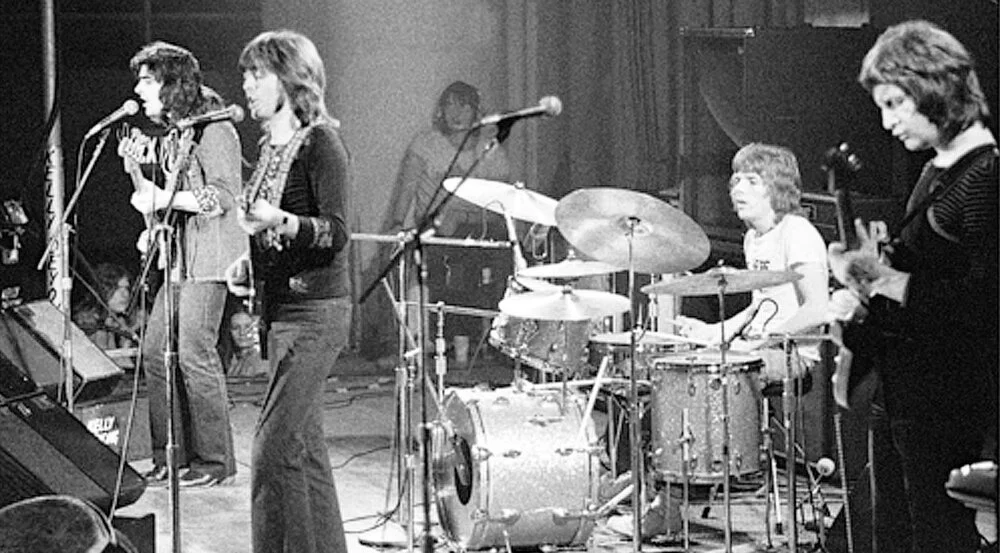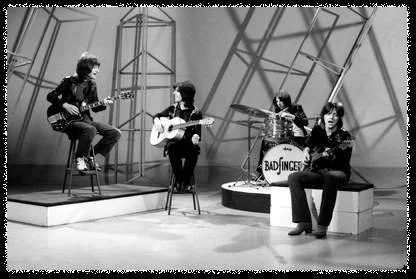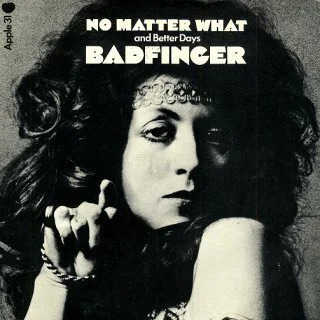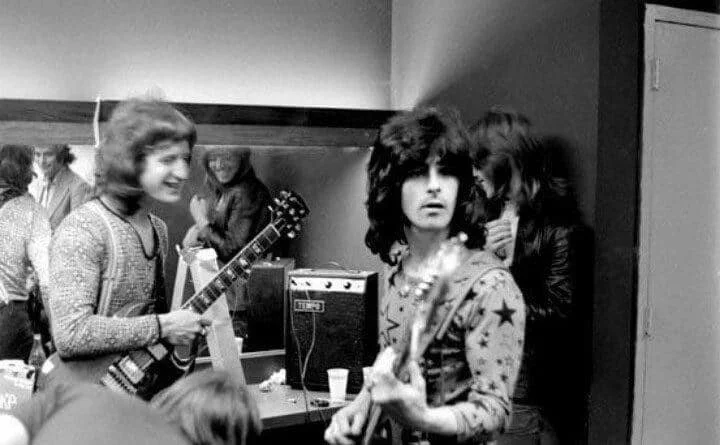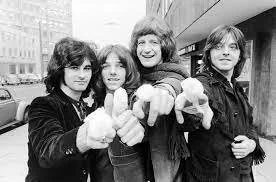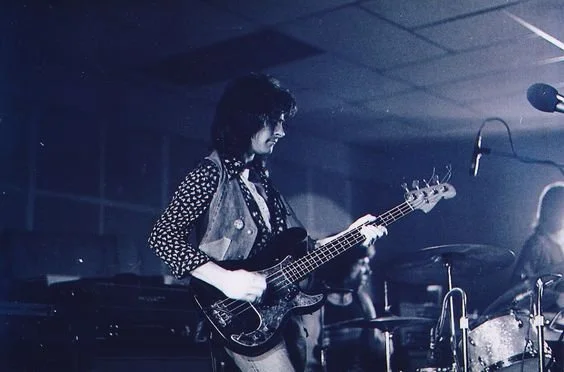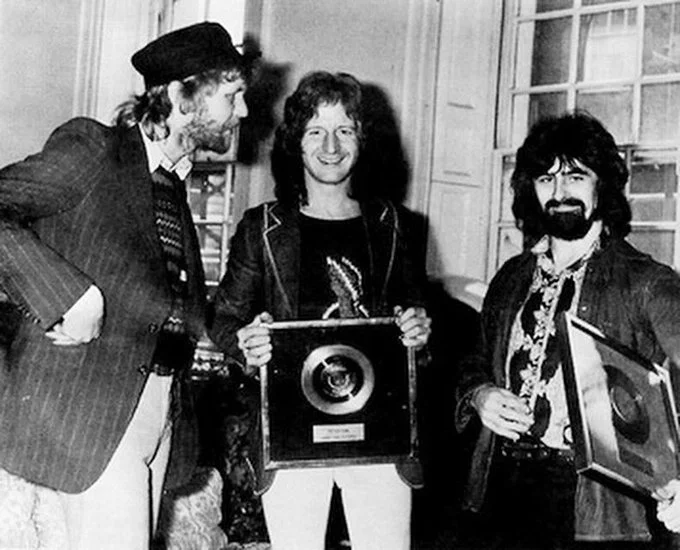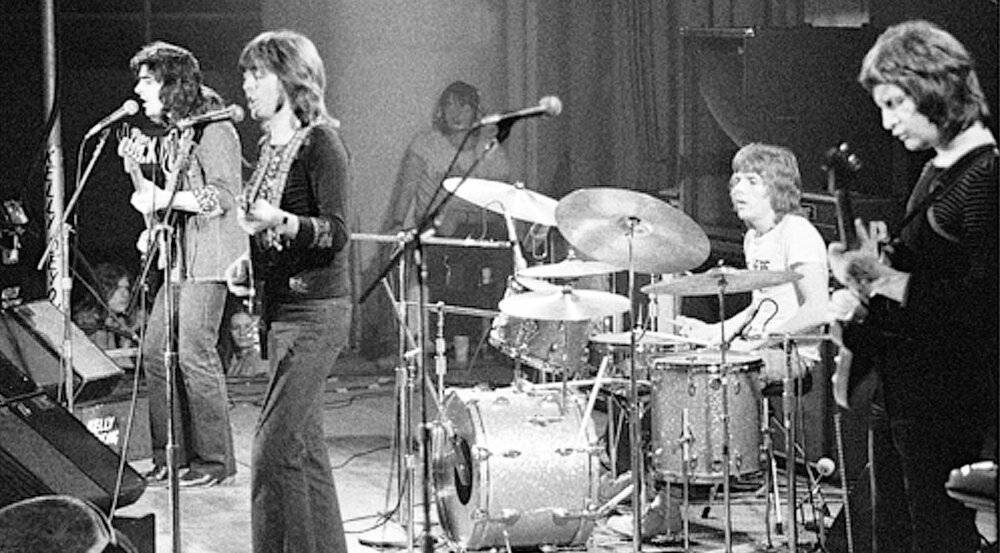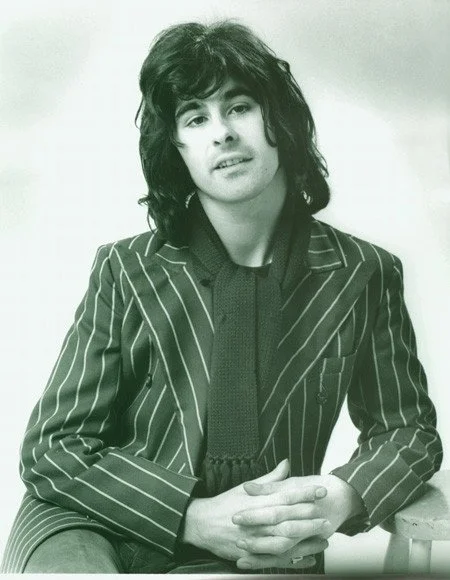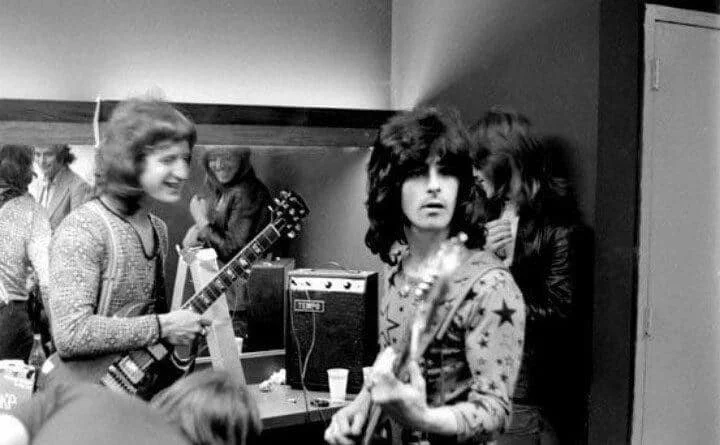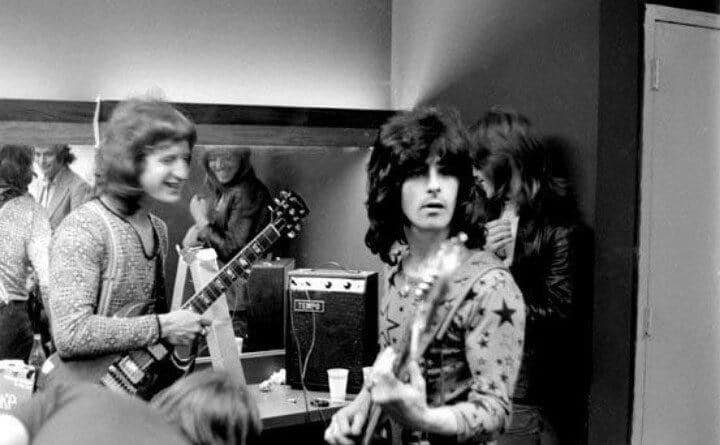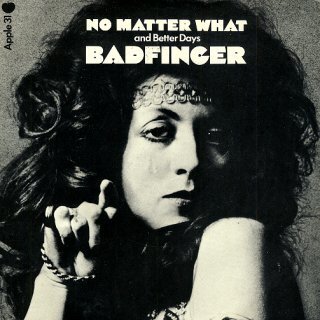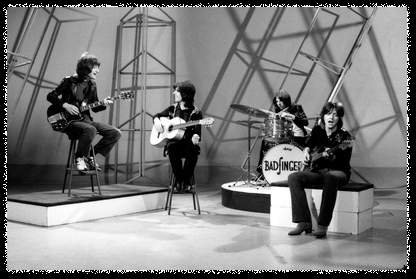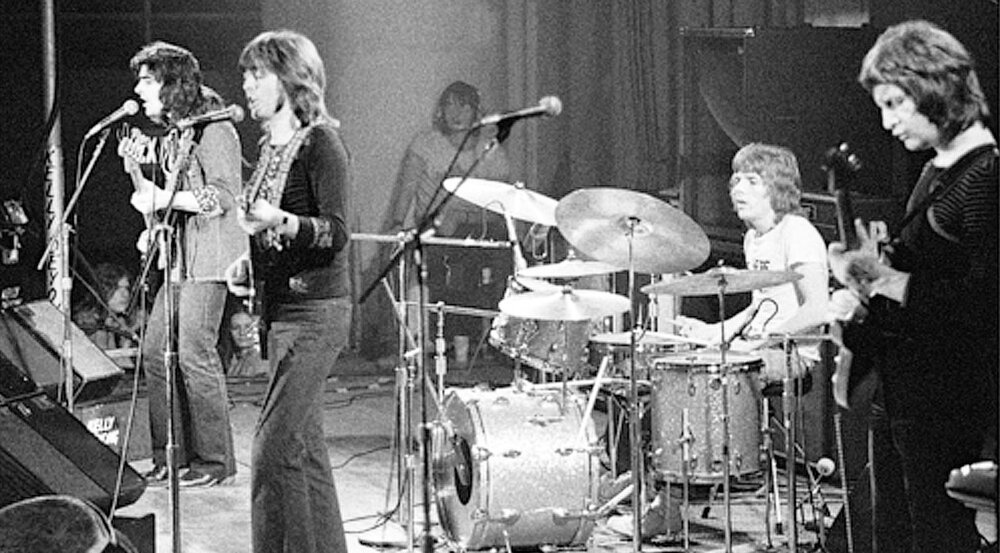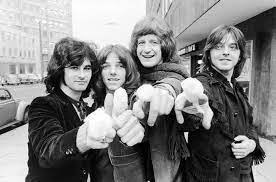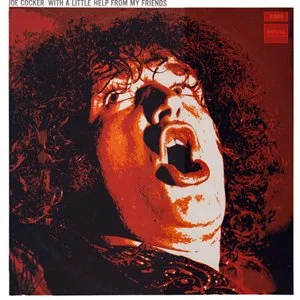Images may be subject to copyright
On this day, 10 February 1970, Welsh rock band Badfinger played Cardiff University with support provided by Rainbow People.
The story of Badfinger is a sad one, with band leaders Pete Ham and Tommy Evans disillusioned by the sheer difficulty and stress of turning their musical talents into hard cash.
Originally signed to the Beatles' Apple Records as the Iveys, Pete Ham, vocals, Mike Gibbins, drums, Tommy Evans, guitar, and Ron Griffiths, changed their name following the release of two unsuccessful singles.
Swansea-born Griffiths left in September 1969 and was replaced by Joe Molland of Liverpool.
The new line-up had a transatlantic hit with Come And Get It, written by their famous label boss Paul McCartney.
Their song No Matter What was another Top 10 hit, followed by critically acclaimed albums No Dice and Straight Up.
By the beginning of the 1970s, Badfinger was something of an Apple house band and even appeared on three solo Beatle recordings (All Things Must Pass, It Don't Come Easy and Imagine) as well as appearing at George Harrison's Bangla Desh benefit concert.
In 1972 Harry Nilsson enjoyed a huge transatlantic chart topper with Without You.
But Pete Ham found it difficult to penetrate the financial jungle which surrounded the music business.
He found himself working in a factory to make ends meet, hearing his song Without You playing on the radio as he toiled away.
In 1975 personal and financial troubles got too much for him and Ham hanged himself.
In November 1983, history repeated itself in the most bizarre fashion when Tom Evans committed suicide by hanging at his Surrey home.
Like Pete Ham, he had been suffering from depression and financial worries.
Following the discovery of some home-recorded tapes, these were finally issued as two complete albums of Ham's songs in the late 1990s.
Although the quality of the tapes was poor, they indicated a great songwriter with a marvellous grasp of pop melody and compounded the tragedy of his early death.


